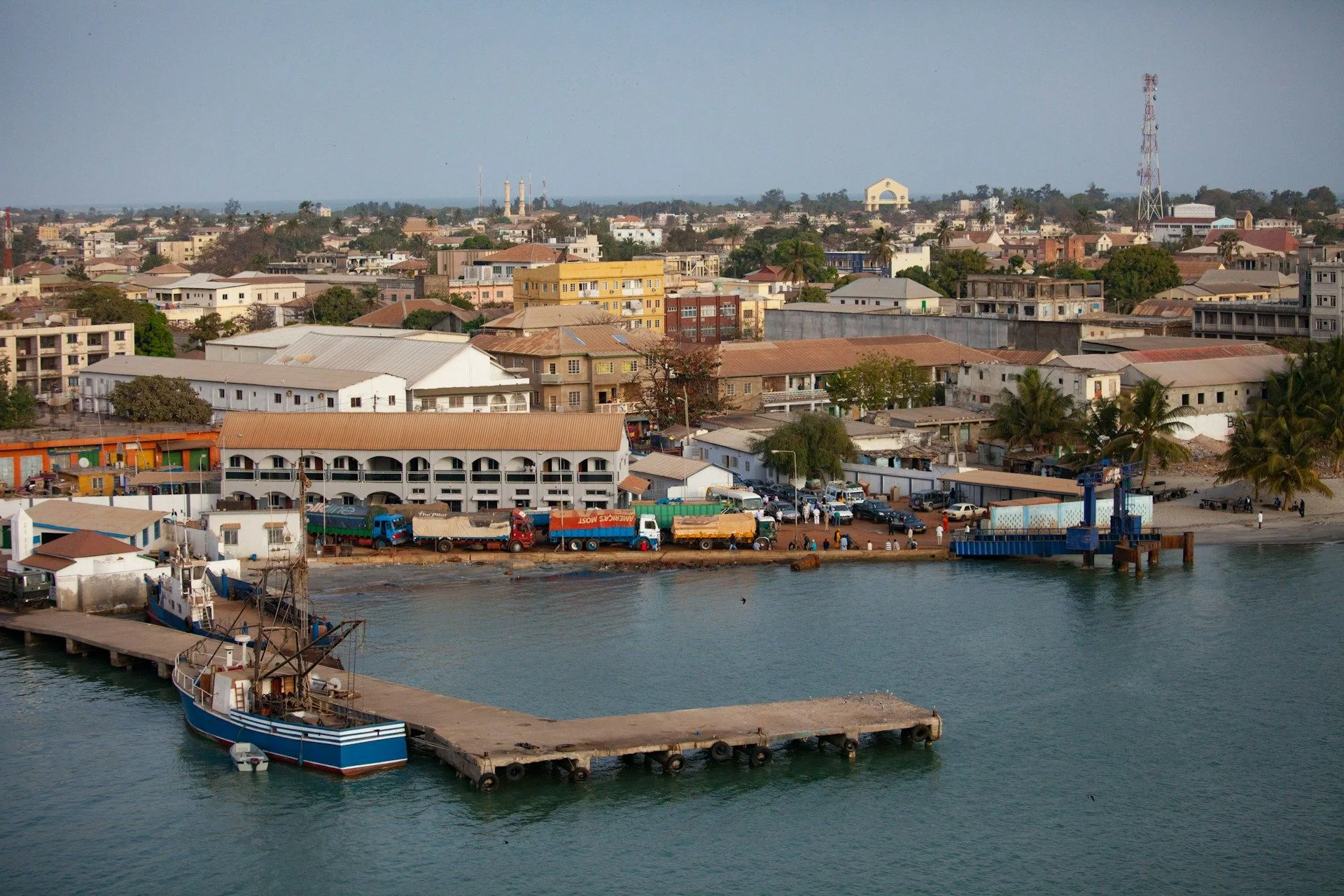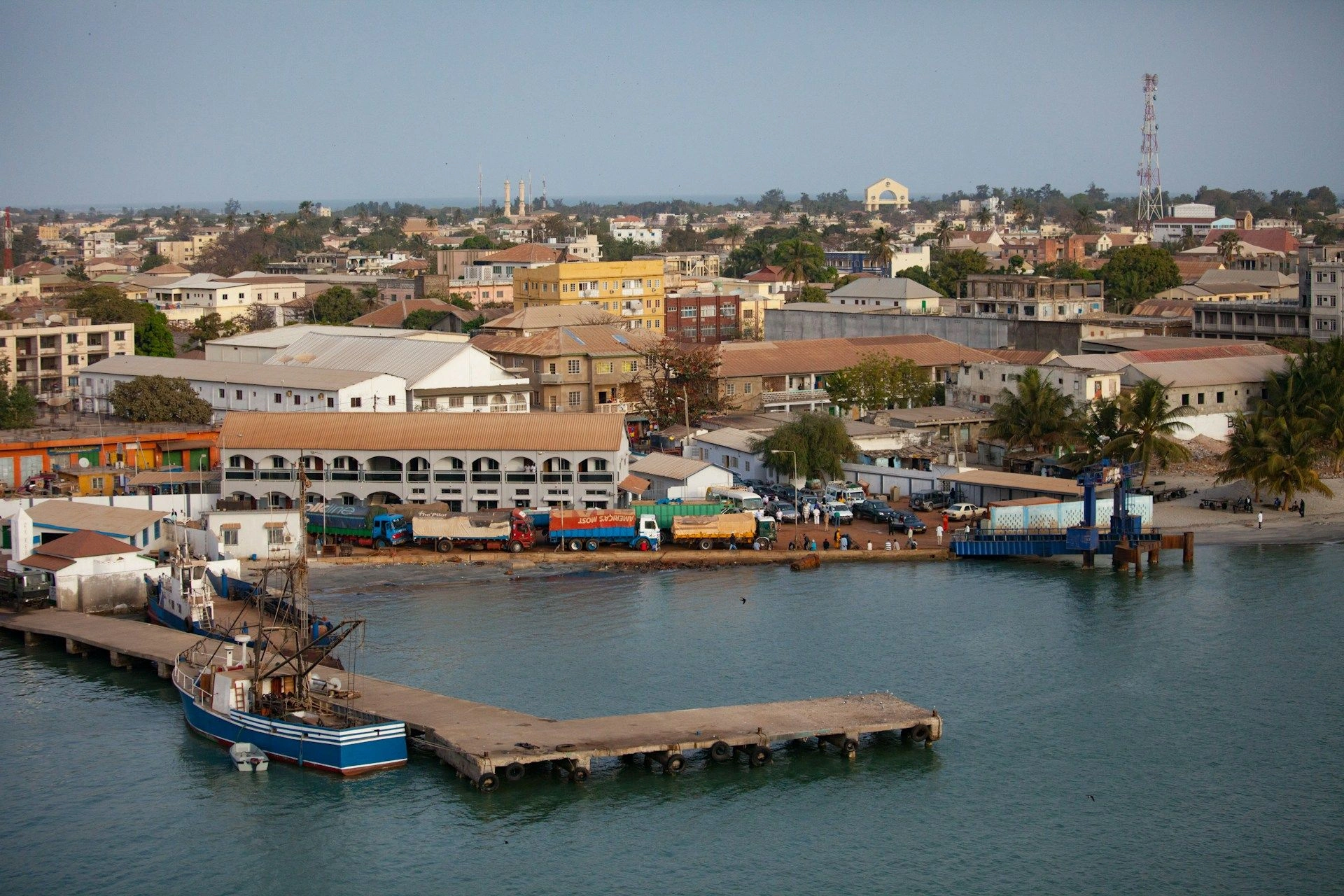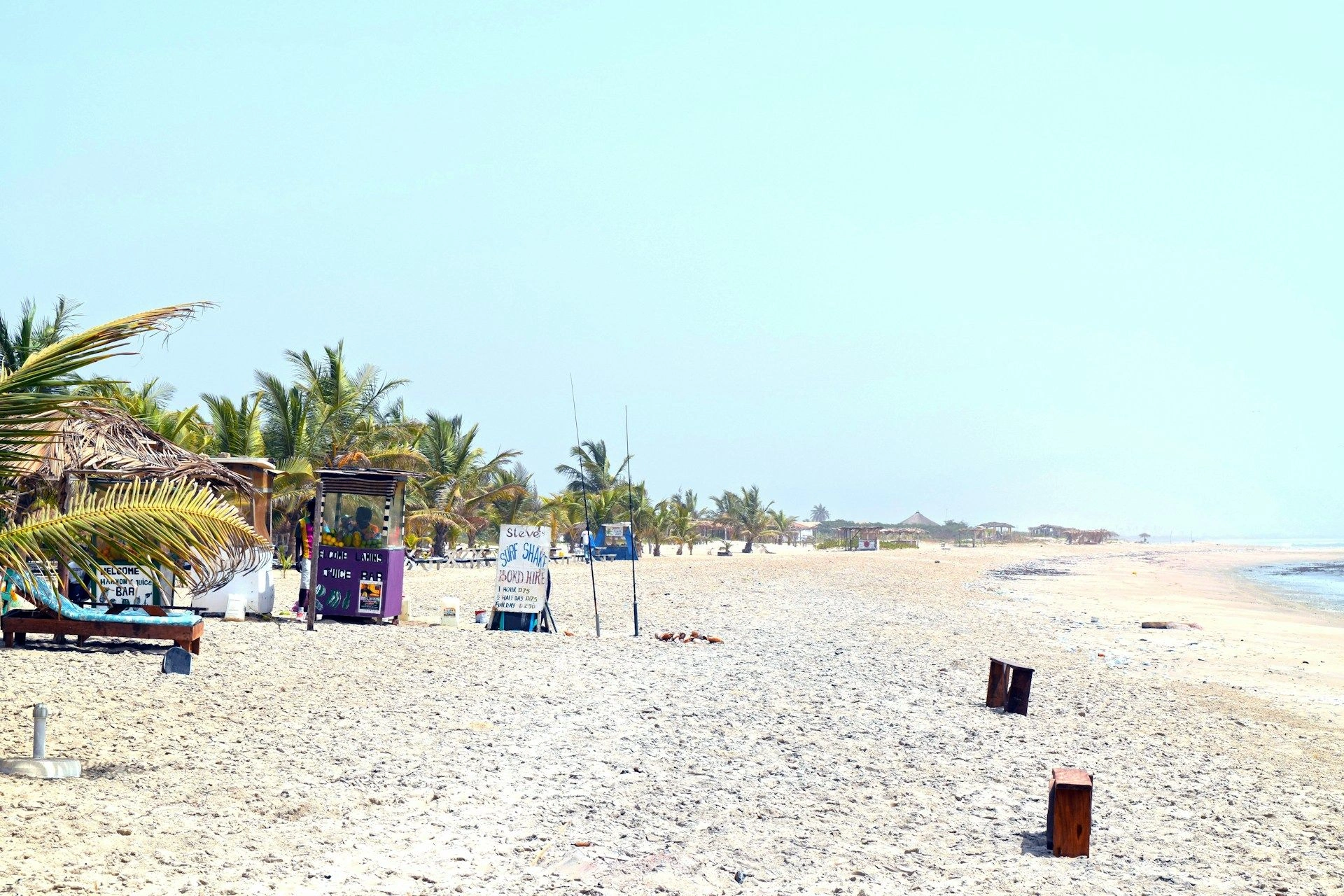Gambia Investment Property ListingsAffordable coastal homes withvibrant expat life

Best offers
in Gambia
Benefits of investment in
Gambia real estate
Low-cost property near beaches and capital city
The Atlantic coast offers homes and land within minutes of Banjul, at a very accessible price point.
Open property market with foreign ownership rights
Gambia welcomes international buyers, with simplified purchase processes and residency options.
Friendly lifestyle in a small, peaceful country
With English as the official language and a welcoming culture, Gambia suits retirees and lifestyle buyers alike.
Low-cost property near beaches and capital city
The Atlantic coast offers homes and land within minutes of Banjul, at a very accessible price point.
Open property market with foreign ownership rights
Gambia welcomes international buyers, with simplified purchase processes and residency options.
Friendly lifestyle in a small, peaceful country
With English as the official language and a welcoming culture, Gambia suits retirees and lifestyle buyers alike.

Useful articles
and recommendations from experts
Real Estate Investment in The Gambia: Coastal Value in West Africa
Introduction: A Compact Nation with Global Appeal
The Gambia, the smallest country on mainland Africa, is rapidly gaining attention for its relaxed lifestyle, coastal beauty, and liberal property laws. Situated along the Atlantic Ocean, The Gambia is a popular destination for British and European retirees, lifestyle buyers, and investors seeking beachside development opportunities. Its English-speaking environment, low entry prices, and expanding tourism sector make real estate in The Gambia an attractive entry point into West Africa’s property market.
Types of Property in The Gambia
Real estate in The Gambia is dominated by residential and tourism-focused assets. Available types include:
- Beachfront villas: Popular with expats and investors targeting rental income
- Urban apartments and duplexes: Mostly in Serekunda, Kololi, and Bakau
- Land plots: For development or speculation; offered in both leasehold and freehold formats
- Eco-tourism resorts: In emerging destinations like Sanyang and Gunjur
- Retail and mixed-use buildings: In Banjul and commercial corridors along the Kombo Coastal Road
Unlike some regional peers, The Gambia offers land and property to foreigners under favorable conditions, spurring interest from diaspora and international buyers alike.
Ownership Laws and Foreign Rights
The Gambia is one of the few West African nations where foreigners can purchase and own real estate with few restrictions:
- Freehold ownership: Foreign nationals can legally own land and buildings in their name
- Leasehold system: Common for government land; typically 50–99 years with renewal rights
- Title registration: All property must be registered with the Ministry of Lands and Regional Government
- Survey requirement: Legal plots must be surveyed and assigned a unique ID before transfer
While legal pathways are available, the property market is informal in parts, making due diligence critical. Many land disputes stem from unregistered or double-sold plots. It is essential to work with a certified surveyor, legal advisor, and reputable real estate agent to validate ownership and confirm zoning status.
Property Prices and Market Trends
Real estate in The Gambia remains affordable compared to other coastal African countries. Price ranges (as of recent reports) include:
- Land in urban areas: USD 20–80/m² in areas like Kololi, Brusubi, and Bijilo
- Beachfront plots: USD 100–250/m² in Kombo South and Sanyang
- Apartments in Serekunda: USD 50,000–100,000 for 2–3 bedroom units
- Villas in tourist areas: USD 100,000–300,000+ depending on size and proximity to beach
Infrastructure such as paved roads, electricity, and water supply significantly affects pricing. New government projects—like airport upgrades and coastal road extensions—are stimulating demand in previously underdeveloped areas.
Rental Yields and Tenant Demand
Rental income in The Gambia comes from three key segments: locals, tourists, and expatriates. Rental trends include:
- Long-term rentals: USD 200–800/month for apartments; villas up to USD 1,500/month
- Short-term rentals: Daily rates of USD 30–150 for holiday homes and guesthouses
- Corporate tenants: NGO staff, diplomatic missions, and oil-sector service workers
Gross rental yields range from 6%–12% depending on property type and location. Demand is highest during the November–March tourist season, when European travelers seek winter sun. Kololi and Bijilo are hotspots for high-occupancy vacation properties.
Transaction Process and Legal Requirements
The real estate transaction process in The Gambia follows a common law structure but requires procedural caution:
- Sign a Memorandum of Understanding (MoU) with the seller
- Verify land title through the Lands Department or Regional Office
- Commission a licensed surveyor to confirm plot boundaries and zoning
- Execute a Sale Agreement and pay agreed deposit (usually 10%–30%)
- Register the title at the Deeds Registry in Banjul
For leasehold properties, a government consent letter and approval from the local council are mandatory. Buyers should always confirm whether the property is freehold or leasehold before proceeding.
Taxes and Transaction Fees
Costs associated with buying and owning property in The Gambia include:
- Stamp duty: 5% of property value
- Capital gains tax: 5% on resale profit (applies only to individuals selling property)
- Municipal rates: Nominal annual taxes paid to local authorities
- Legal and agency fees: 1%–3% of transaction value depending on complexity
There is no VAT on property purchases. Foreign investors should ensure all payments are documented and routed through the Central Bank for traceability and future repatriation of funds.
Popular Investment Zones
- Kololi and Bijilo: Tourist heartland with restaurants, resorts, and beachfront villas
- Brusubi and Brufut: High-end residential districts with growing expat population
- Sanyang and Gunjur: Emerging eco-tourism hubs with large beachfront parcels
- Serekunda: Largest urban area; strong demand for apartments and shops
- Fajara: Historic colonial neighborhood with golf course and embassies
Proximity to the Atlantic coast, airport, and paved roads are the main factors driving demand. Kololi remains the preferred choice for short-term rental investments, while Brufut and Bijilo are favored for long-term capital appreciation.
Investment Scenarios
- Land banking in Sanyang: Buy 1,500 m² for USD 35,000; hold for resale or villa development
- Holiday rental near Kololi: Purchase villa for USD 150,000; rent for USD 100/day → potential gross yield over 20% in peak season
- Multi-unit residential in Brusubi: Build 4 apartments for USD 220,000; rent at USD 500/month each → USD 24,000 annual income
While speculative activity exists, many investors focus on income-producing assets or development tied to tourism demand.
Risks and Local Challenges
Despite opportunity, The Gambia's real estate sector requires cautious navigation:
- Land disputes: Some plots are unregistered or have unclear history; always verify through government channels
- Poor construction standards: Vet developers and use contracts with warranties
- Currency exposure: The Gambian dalasi (GMD) can fluctuate significantly; USD-based pricing is common
- Infrastructure limitations: Power and water supply may be inconsistent in undeveloped areas
To mitigate these, partner with local professionals, conduct full due diligence, and invest in areas with proven demand and services.
Conclusion: A Niche but Promising Coastal Market
The Gambia offers one of West Africa’s most open and accessible real estate markets for foreign investors. With freehold land options, rising tourism, and attractive coastal properties, it presents both income and capital growth opportunities. While regulatory compliance and proper documentation are essential, investors who take a structured approach can benefit from early-stage appreciation in a market gradually modernizing its real estate ecosystem. Whether developing beach villas, buying income properties, or land banking for the future, The Gambia stands out as a small country with big potential in the property sector.


